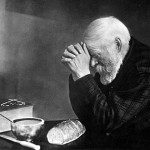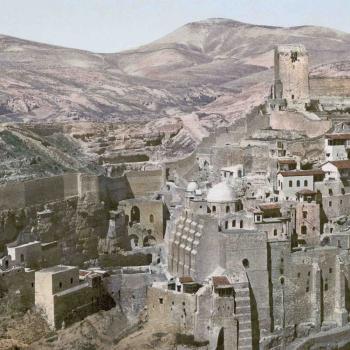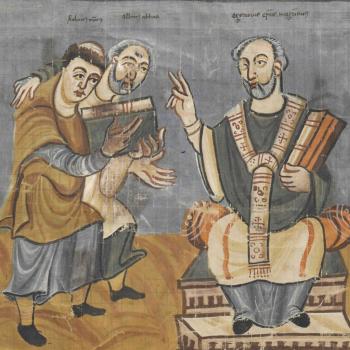I have often posted on themes of history, memory, and forgetting, and some recent news stories brought that home to me powerfully – especially on all we have forgotten beyond hope of recovery. This issue of lost worldly glories seems appropriate for the Easter season.
Earlier this year, Egyptian archaeologists made a spectacular find, a colossal statue of (probably) Rameses II, “found submerged in groundwater in a Cairo slum.” Rameses ruled from 1279-1213 BC, and is sometimes cited as the pharaoh of the Exodus. Particularly given the very humble nature of the find site, some journalists inevitably recalled Shelley’s poem about fallen ancient glories, Ozymandias:
My name is Ozymandias, King of Kings;
Look on my Works, ye Mighty, and despair!
Nothing beside remains. Round the decay
Of that colossal Wreck, boundless and bare
The lone and level sands stretch far away.
The moral lessons about human transience are obvious enough, but they were further brought home by another news story from last year, from Tollense, in far northern Germany. Somewhere around 1250 BC – actually, in Rameses’s own lifetime – warriors fought a vast battle here, in which several hundred were likely killed. A reasonable estimate is that at least four thousand were involved in the battle, which is a staggering number for many reasons. A generation or so back, scholars of early and medieval times tended to be hyper-skeptical about the numbers cited in historical accounts, and radically minimized the scale of battles. Did a source say that ten thousand men fought? Why, really, claimed these historians, more likely it was just a few dozen on either side. Over time, that extreme skepticism has itself been challenged, so we are more prepared to imagine authentically large armies and battles. But having such undeniable hard evidence for something like Tollense far back in the Bronze Age is startling indeed.
It also runs flat against the common tendency to see early cultures as peaceful trading communities, rather than warriors. We find evidence of seriously deadly bronze weaponry, of body armor, and of warriors mounted on horseback. It all sounds very Homeric. To quote Andrew Curry in Science Magazine, “It may even be the earliest direct evidence—with weapons and warriors together—of a battle this size anywhere in the ancient world.”
Given the lack of writing in northern Europe at this time, we obviously know nothing about the peoples or leaders involved, nor the languages they spoke, but we know the wider world in which they lived. This was the great century of the Middle Eastern powers, before the Bronze Age collapse. Those great powers included the Middle Assyrian empire under Shalmaneser I, whose son conquered Babylon in 1235 BC. There were also the Egyptians and the Hittites, who fought their own mighty battle at Kadesh, around 1274 BC. This was first historical battle in which we actually can reconstruct the tactics and details of the fighting. The Trojan War occurred somewhere about this same time, involving the Mycenaean powers of the Greek mainland. And probably in the late thirteenth century, the nation called Israel was emerging in Canaan, fighting and conquering local cities. The first actual historical mention of Israel occurs in an Egyptian text from 1207 BC.
In his recent story, Andrew Curry quotes some experts on Tollense as saying that “It’s an army like the one described in Homeric epics, made up of smaller war bands that gathered to sack Troy,” a comment reflecting the diverse genetic origins of the remains. Some of those warriors at least had traveled a long way to die at Tollense. “To organize a battle like this over tremendous distances and gather all these people in one place was a tremendous accomplishment.”
This is my comment, not that of the excavators: if they had traveled south rather than north, perhaps some of these warriors might have ended up storming the walls of Troy.
The archaeological finds are impressive enough in their own right, but the whole story inspires a thought. Presumably someone won this battle, or at least claimed a historic victory. Perhaps both sides did. And given what we know about such cultures, bards and poets were assuredly on hand to hymn the victors, to ensure their eternal glory as saviors of their kingdom and people. Perhaps those poems and songs were immensely popular, and they continued to be remembered maybe for five or six hundred years, an immense length of time in human affairs.
Those songs and poems and memories have all utterly perished, without any hope of being recovered.
We don’t know the story of the victories of King of Kings X of Y, or whether the kingdom of Y existed for a generation, or for several centuries, and we can never know. It is all irrevocably lost.
And as for their immortal and invincible gods …
Look on my Works, ye Mighty, and despair!

















